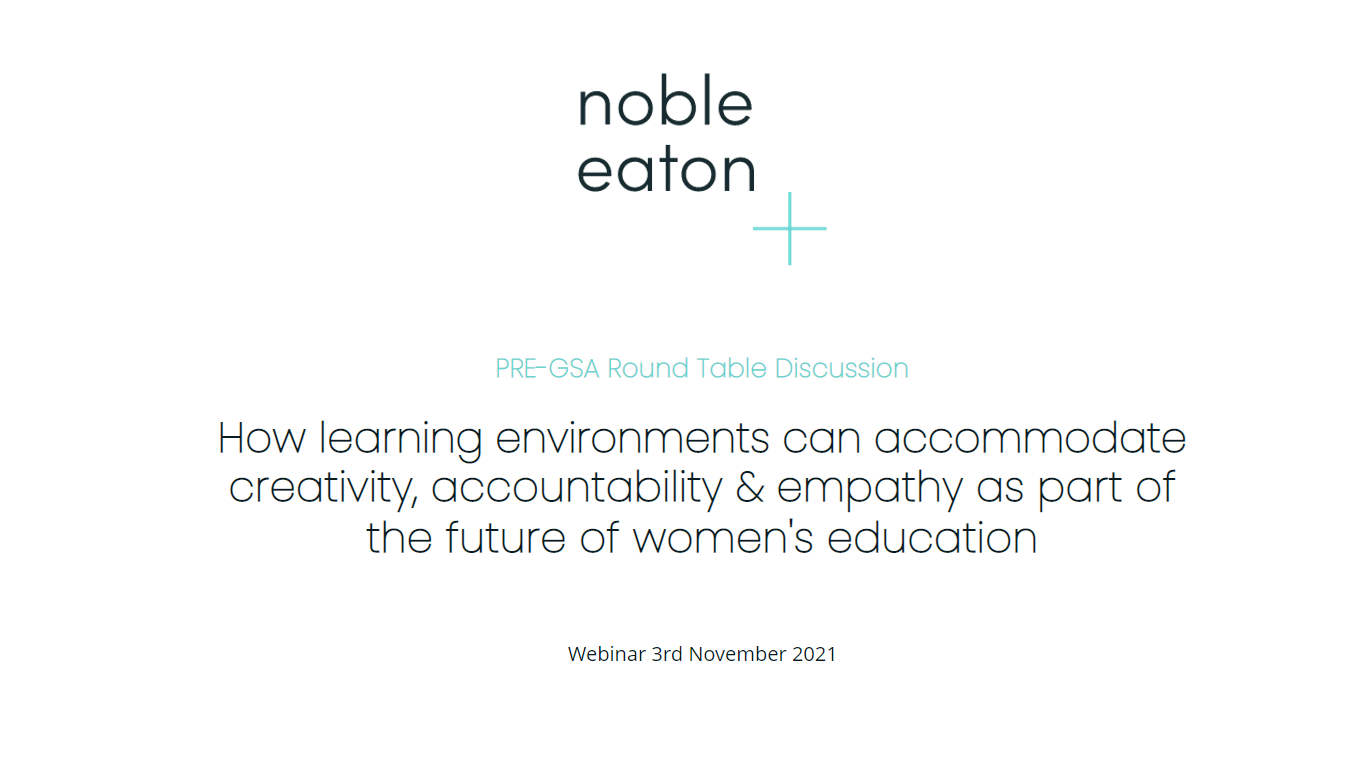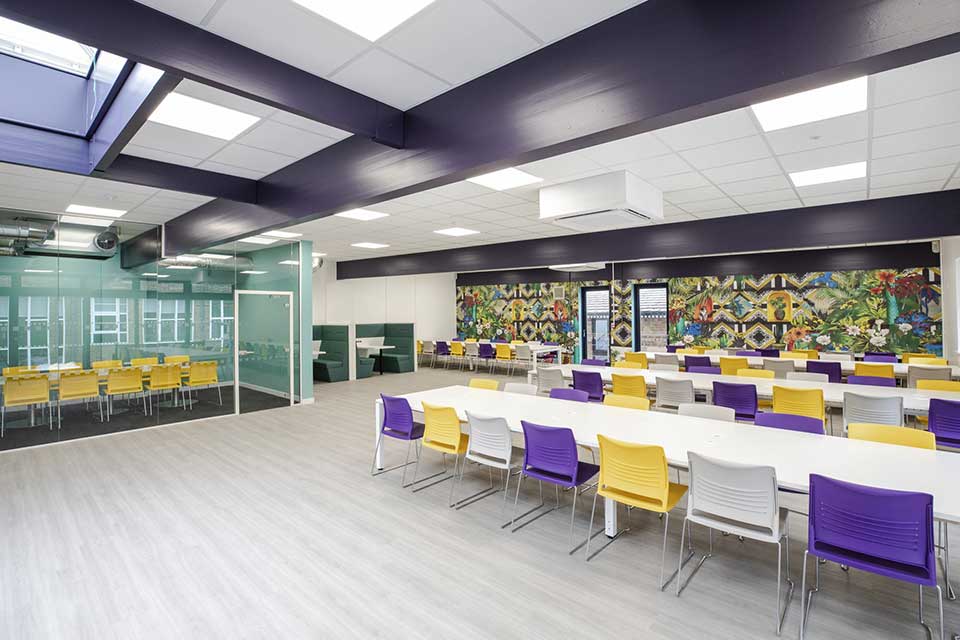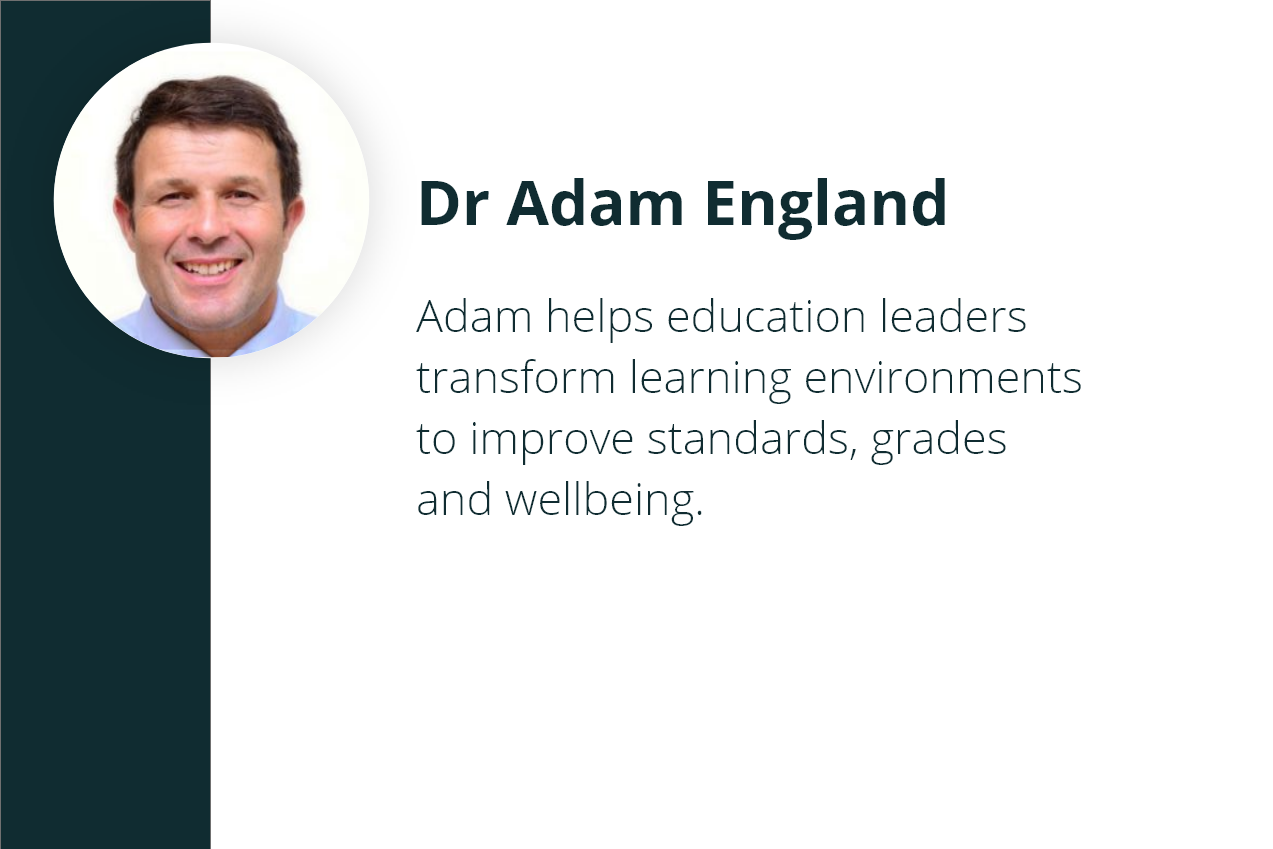Accommodating Creativity, Accountability and Empathy in Women’s Education Environments

Influencing our students for the future starts with contemporary thinking in education for women and girls. Chaired by Educational Leadership Consultant Dr Adam England, and featuring School Leaders Rebecca Tear, Headmistress of Badminton School, and former President Joy Isa of Barwaaqo University in Somaliland, this fascinating discussion delves into the key attributes of Creativity, Empathy and Accountability to empower women reaching where they want to be in society – whether that is as leaders in their communities and workplaces, or as mentors inspiring other women to achieve and succeed.
Introduction by Rebecca Tear, Headmistress of Badminton School:
These are very exciting times post-pandemic and we are looking forward to planning the long term future.
We are so fortunate at Badminton because girls’ education is a privilege; our pioneering school was founded fairly recently so there is less structure and fewer constraints to contend with. Our aim is to keep developing and moving forward with creative ways of thinking like the best businesses do and continue to do this as the world is ever changing.
It is important to teach creative skills – not just creative arts – and we need to get that way of thinking across to young people. For example, empathy is a skill that builds on personal interactions and we can teach wider life skills (along with professional skills) such as teamwork. Our school can identify courses and providers so that students can feel that they have extra skills that are above and beyond the fundamental exam success they will be taught. These will ensure that they thrive in their chosen pathways but we need to ensure all girls have the confidence to aspire to Senior Leadership if they so wish; we do this by changing mindsets about the traditional barriers to women such as childcare.
Introduction by President Joy Isa of Barwaaqo University:
Our university is also a new institution at just four years old and this means we can formulate our own learning journey. In Africa, women are far less likely to be educated than men or have had no access to education. We aim to align tertiary education with self confidence and competence so that women can attain skills they choose to live; even in more privileged communities we need to figure out what life skills women need and empower them with those skills. For example, we need to reduce stereotypes and societal expectations by exploring multiple opportunities to get students from where they are to where they want to go and beyond.
In our part of the world, more universities are becoming co-educational but cultural and religious context needs to ensure that women here do have access to female only universities. We need to change the traditional predicted pattern of learning and become flexible active contributors to community – are we teaching women the importance of active contributions to their communities? It is not just about making money, it is about creativity in motion by having these conversations and giving women skills and self-confidence.
I agree with the Ruler of Dubai who said you are losing talent if you do not educate 50% of your community.
How can environments foster self-confidence?
Rebecca Tear: they need to be the right scale and size fit for learners needs, and they must be comfortable environments so everyone can take risks and try new things. Learning is pivotal.
Joy Isa: I feel the same. without an enabling environment no one will explore or try out new skills. Moving away from knowledge heavy curriculum towards skills based is important for our institutions. Are we giving students skills in debate, public speaking, confidence etc? How are you going to overcome the mental barrier of many women who feel they do not have a voice?
In Africa, English can be the third language for some so we have all sorts of conversations. Our older students record books for younger students but context is important, we need to find out what skills do students need. For example, we need to empower women to be able to peaceably talk in situations they may feel uncomfortable in, such as raising issues with their boss and not feel cowed. I recently won a maths competition where I competed against school leaders (and fortunately won!), setting an example in providing opportunities to our female students.
What’s the way forward? Are we looking at the ‘I speak you listen’ way or more like ‘guide on the side’ or something else?
Joy Isa: We err on the side of tradition by not borrowing from foundation stage learning where students have a voice and a choice. In universities there are a limited list of modules so we need to look at if it is possible that we can give students more of a choice. Students need to learn how to learn by unlearning and relearning. Often they finish their degree and think they will be the best in their job but then find they need to do more training when they start work. We need to make sure we are finding opportunities for students to apply real life and relevant settings that their teacher can facilitate.
Rebecca Tear: I totally agree it is not just a case of filling children up with knowledge. We should walk alongside them, give them a practical immersion in their subjects and give them lots of skills such as how to access, communicate and initiate knowledge. It should always be our moral aim to make a difference to young peoples’ lives with transformative tools.
Joy Isa: From core education andragogy and pedagogy, children learn the same way as adults; don’t tell them the answers, let them explore, experience and learn along the way and this way of thinking should permeate education in general. Students will then make their own meanings out from their own varied experiences.
Rebecca Tear: With our school, we give students the opportunity to reflect on learning processes. Students have reflective journals and feedback to create a continuous cycle. Having studied entrepreneurship, I believe that iterative process is a skill that we need to take into education. On the whole, students don’t tend to say ‘I got 70% in my test and I need to learn about the other 30%’ – they just focus on the result they achieved in numbers. We need to constantly think how we can change and adapt so we keep eternally youthful in our thinking and approaches as reflection is so pivotal to improving our education offering in every stage in the future.
Adam England: These really are such insightful and thought-provoking answers. My next question: There is institutionalised misogyny for example in the police and government; what can girls’ schools do to safeguard the emotional wellbeing of students?
Rebecca Tear – We need to teach students how to be self-reflective, self-aware and possess emotional self-defence. Their emotional tool kit needs to give them confidence with communication and negotiation. Early intervention using these tools means difficult situations can be handled calmly and can often be de-escalated using open communication. We need to teach young people to use these tools with staff, adults and external agencies so that going forward they can have the confidence to articulate their views and look for alternative pathways to solve problems if they need to.
Senior women should model the ‘doing’ of things and not just the learning so that all women find positive ways of working issues out for themselves and can confront these appropriately.
Joy Isa: To develop resilience you need to be able to come back from condescending and demeaning situations. Women need practice which comes with life skills which often goes beyond us as educators as we cannot simulate and anticipate all situations. Generally it is not acceptable for a female police officer to cry, and she will be labelled – even if she just needs to take a moment to recover herself – or for a leader to sort childcare, and we need to remove these limitations. Why is it that you can’t have baggage to become a leader? We should be teaching how to BE REAL by standing up for what you believe in and for who you are in line with cultural expectations, but I am not sure that society is ready for that.
How do we get women to the top table in management?
Joy Isa: We need to provide flexible opportunities – in terms of course design, content etc – for women so they can survive highly driven and demanding traditionally masculine areas. We need more female mentors and role models to inspire women; more networking of women in leadership so that we can associate with them, have dinners, hold meetings, attend clubs and so on. Women need to rely on each other, they need to know there are women supporting women and leverage opportunities. Men do this very well.
Rebecca Tear: I 100% echo about mentorship. I have been so fortunate in my role, with serendipitous sponsorship from other women who have provided huge encouragement and said to me not to hold back. They have provided help with applications and much more. Women who have gone before you may see strengths in you that you don’t see and I now feel compelled to give back as other women have done for me. We should ask challenging questions and sponsor or mentor other women publicly and take on very visible community leadership roles. Ultimately, role modelling of excellence.
However I found some books on female leadership were sometimes not realistic, for example being able to change one’s working hours. This may put women off who may feel overwhelmed or feel that doesn’t work for them, so we must get the context right to enable and empower. I enjoyed my Masters and I enjoy my job – let’s be cheerleaders for the next generation.
You have both covered empathy with examples of kindness and growth – thanks to you both for your fascinating comments.



